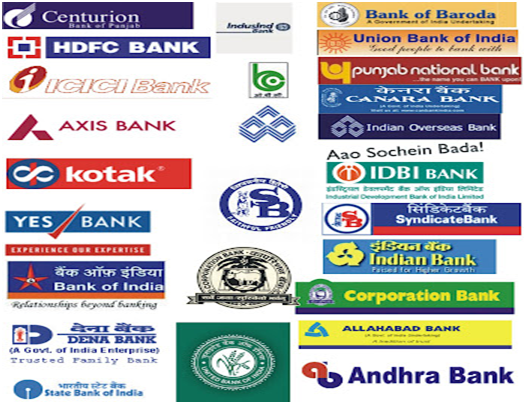 Featured Sector
Featured Sector

 Featured Sector
Featured Sector


The Banking sector in India has always been one of the most preferred avenues of employment. In the current decade, banking has emerged as a resurgent sector in the Indian economy. The idea of service is persistently highlighted by the banking industry and service is the chief ingredient of success of the sector. As per the McKinsey report ‘India Banking 2010’, the banking sector index has grown at a compounded annual rate of over 51 per cent since the year 2001, as compared to a 27 per cent growth in the market index during the same period. It is projected that the sector has the potential to account for over 7.7 percent of GDP with over Rs.7,500 billion in market cap, and to provide over 1.5 million jobs.
Today, banks have diversified their activities and are getting into new products and services that include opportunities in credit cards, consumer finance, wealth management, life and general insurance, investment banking, mutual funds, pension fund regulation, stock broking services, custodian services, private equity, etc. Further, most of the leading Indian banks are going global, setting up offices in foreign countries, by themselves or through their subsidiaries.
Major recruiters of banking Industry are the public sector banks like The State Bank of India Group, nationalised banks namely Allahabad Bank, Bank of India, Canara Bank, Central Bank of India, Punjab National Bank, Syndicate Bank, private sector banks include the ICICI Bank, HDFC Bank, Axis Bank, Federal etc. These banks conduct their own exams, but normally follow patterns similar to those of the exams of the public sector banks. There are Co-operative Banks which include all major National and State Co-operative Banks and Scheduled Urban Co-operative Banks. They conduct their own exams to recruit staff. Their recruitment exams, too, are generally similar to the exams of the public sector banks.
The banking career planning should include several factors such as training and development. There are several educational qualifications that augment banking-career progression. A number of vocational qualifications such as the Certificate in Financial Services and the Diploma of Financial Services are also available.
Various job profiles in the banking sector are:
Bank clerks: As a bank clerk, you could be classified into one of the following roles:
Interest Clerk who is responsible for recording interest owed to saving accounts customers and interest owed to the bank from loans and other investments
Loan Clerk who is responsible for recording and organizing loan information.
Statement Clerk who is responsible for preparing the monthly balance sheets and checking account of customers as and when needed.
Exchange Clerk who is responsible for working on international accounts, translating foreign currency into home currency and vice versa.
Security Clerk who is responsible for recording, filing and looking after stocks, bonds and other investment documents.
Bookkeeping Clerk who is responsible for taking care of records for each customer's account. Recording and organizing loan information, preparing the monthly balance sheets of checking account customers is also part of the job.
Skills RequiredProbationary Officers: They are involved in various operations like keeping a record of investments, loans, mortgages, providing services like payrolls and inventory accounting to the customers. Probationary Officers should exhibit knowledge in the area of global money markets and financial instruments such as deposit certificates, treasury bills, forecasting, source evaluation and cost of domestic and foreign currency funds. They also need to assess various markets on the behalf of the bank to advice corporate or other banks that need foreign currency. The job requires the Probationary Officer to be constantly updated about the policies of the regulatory bodies, monitoring the current prices, making predictions based on analysis of trends etc. Probationary Officers should also be efficient in keeping records of personal accounts, business, mortgages, instalment loan etc.
Skills RequiredBank Specialist/Generalist Officers: Banks also recruit generalist/specialist officers in scales like Junior Management Scale. Various categories of specialist officers' jobs are:
IT Officers - They look into maintenance of servers, database and other networking aspects. Generally, candidates with B.E. / B.Tech or a degree in Computer Science are recruited as IT officers.
Law Officers - They are meant to handle legal/judicial matters related to the bank. A Bachelors Degree (LLB) and Post Graduate Degree in Law (LLM), Certified Associate of the Indian Institute of Bankers (CAIIB) are generally preferred to be a law officer in a bank.
Skills RequiredBank Tellers: Bank tellers process financial transactions with a high degree of accuracy. They must be meticulous, security conscious and pay attention to details. Tellers must be able to communicate effectively with customers and inspire confidence that they are skilled enough to take care of customer assets and needs. Besides handling deposits and withdrawals, tellers also change money, cash checks, sell traveller’s checks and money orders and collect loan and utility bill payments. Tellers also may be called upon to sell other bank services to customers.
Skills RequiredBill and Account Collectors: Bill & Account Collectors locate and notify customers of delinquent accounts by mail, telephone, or personal visit to solicit payment. Duties include receiving payment and posting amount to customer's account; preparing statements to credit department if customer fails to respond; initiating repossession proceedings or service disconnection; keeping records of collection and status of accounts
Skills Required